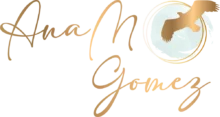- Do you feel annoyed, angry or bored often?
- Do you isolate from others?
- Do you feel that you are not as good as others are?
- Do you have nightmares or have a hard time falling asleep or staying asleep?
- Do you have negative events that happened to you? Do you tend to keep things inside and not tell anyone?
- Do you use drugs or alcohol or do you do things to harm your body to numb or escape the uncomfortable feelings? Or do you do this to fit in because you don’t feel connected to others, or you don’t feel as good as others?
Well, believe it or not a lot of kids, teens and adults feel this way, and there is help for all of us!! There is a way to find hope and find our positive feelings again.
It is really cool that you are interested in finding ways that can help you get better. Let’s start by talking about what happens when we go through tough stuff in our lives:
When we have bad or negative events in our lives like abuse, bullying, divorce, accidents, losses and death of a loved one, violence in the home among others, the brain creates ‘files’ or “apps” that contain all the feelings, thoughts, and body sensations connected to this event. When we have events that are not ‘too bad’, the brain has the capacity to work on these files/apps before storing them and locking them up as memories. What is stored has been sorted out and organized so the negative stuff has been let go, allowing us to keep the good stuff and learn from this experience. However, when the event is really bad or has happened several times, these files/apps get overloaded and the brain can’t do the work of sorting things out and putting all the pieces of the event together. As a result, these files/apps are all messy, in pieces that are not put together and organized by the brain. Different life events we call triggers can open up these files/apps or “click” on them. A “click” may be a classmate making fun of us, being ignored, not getting what we are asking for, parents asking us to clean up our room and so on. When these “clicks” open up the files/apps, we start to have the negative feelings, thoughts, and body reactions we had when the bad stuff happened. EMDR helps the brain organize these files and put all the pieces together. When the files/apps are finally organized, the “clicks” of everyday life won’t have the power to make us feel angry, sad or shameful or to think that we are not worthy or that we are not enough or to make us yell, become aggressive or do things we regret later. EMDR is not a “magic” cure. It takes some work, but it is sooo worth it because recovering our ability to feel good is worth all of our efforts.
(This is an excerpt from Ana’s book: EMDR Therapy and Adjunct Approaches with Children: Complex Trauma, Attachment and Dissociation)
One of the many things that happen when we do EMDR is that we move our eyes from one side to the other while thinking about the negative or tough event. This is not new for you body; in fact you move your eyes every night from side to side when you are dreaming. This is called REM (Rapid Eye Movement) sleep cycle. EMDR therapists know how to use EMDR and will guide you and further explain all the stuff that happens when we do EMDR and what we know about it. Do not try to do this on your own, as it is NOT recommended.
Ana can be a helper for you and your family. However, if you are too far from where Ana is, there are many other EMDR helpers all over the world. Let your parents know you are interested in receiving EMDR therapy, so they can support you in finding a therapist in your area. Below are some sites where you can find EMDR therapists:
- If you live in the US or anywhere in the world go to www.EMDR.com or www.EMDRIA.org
- If you live in Latin America or Central America go to www.EMDRiberoamerica.org
- If you live in Europe go to www.emdr-europe.org
- If you live in Asia go to https://emdr-asia.org
- If you live in Australia go to https://emdraa.org
